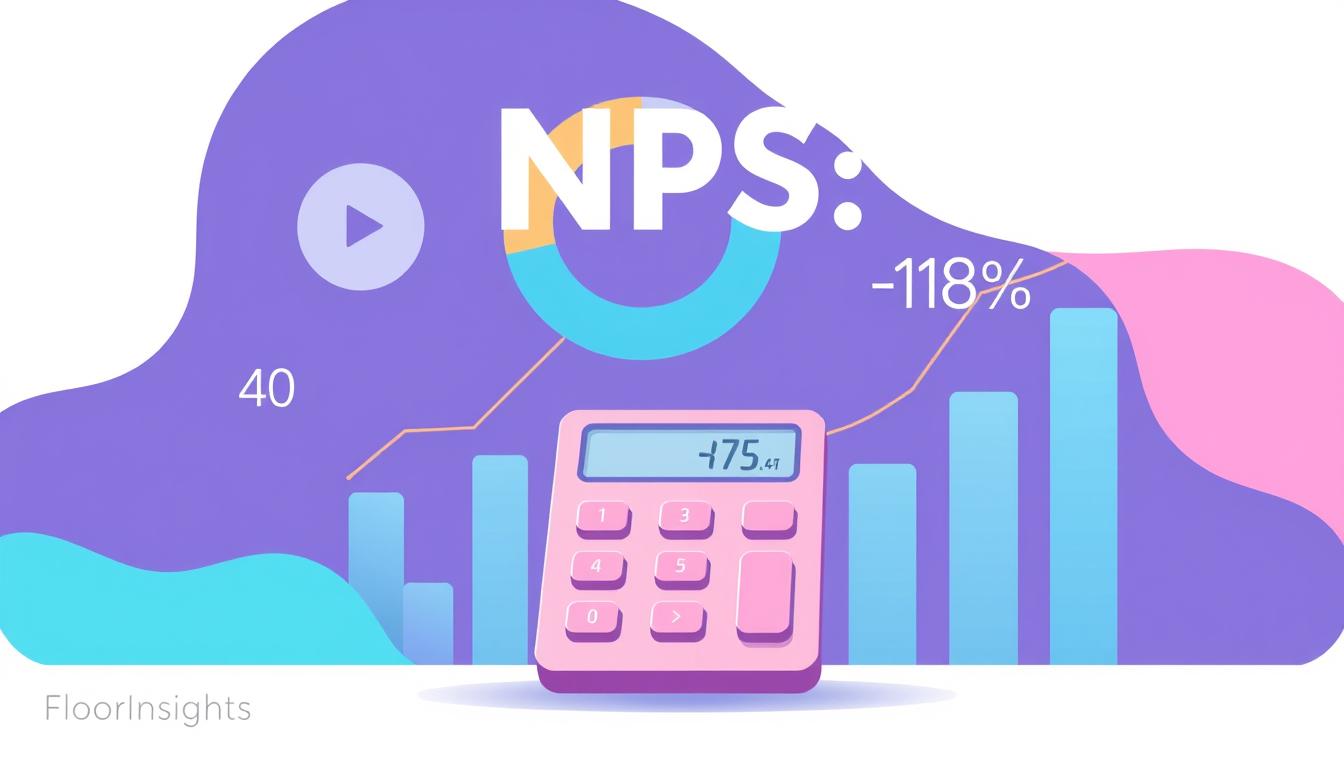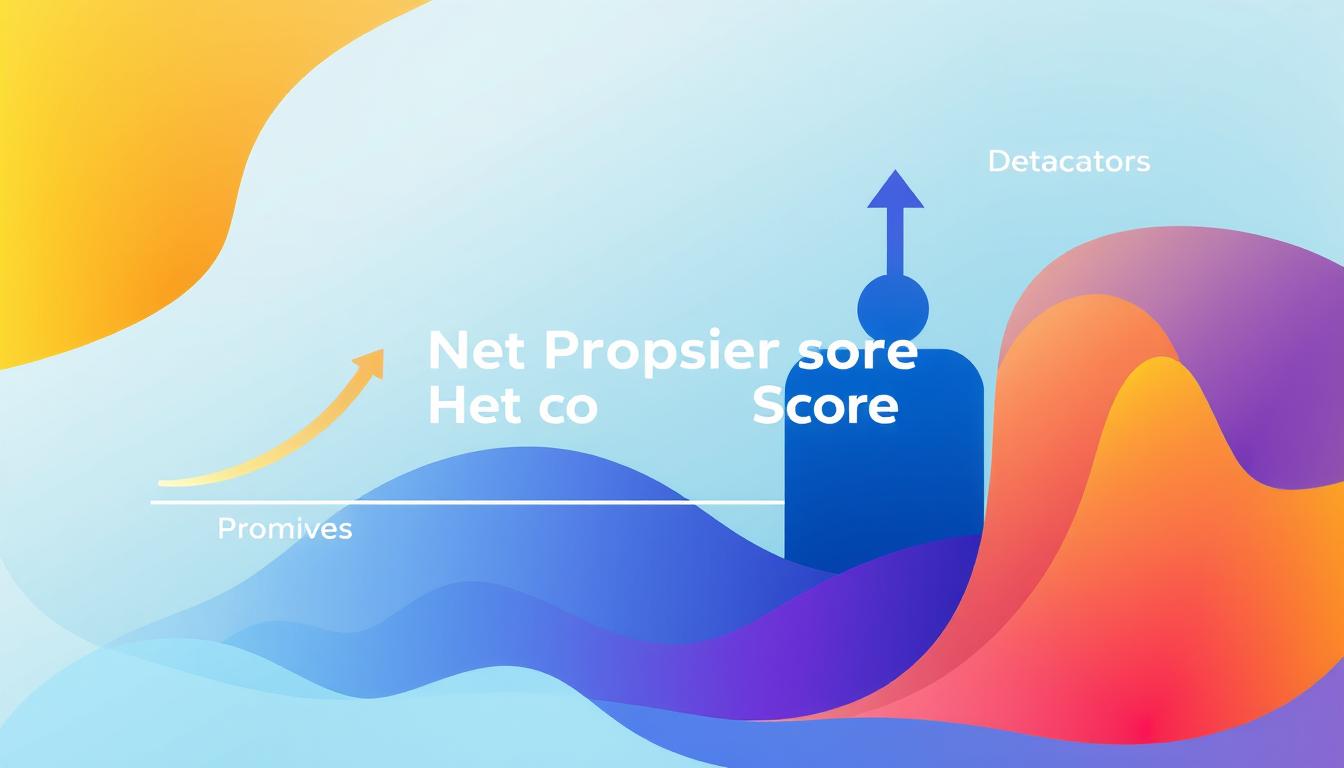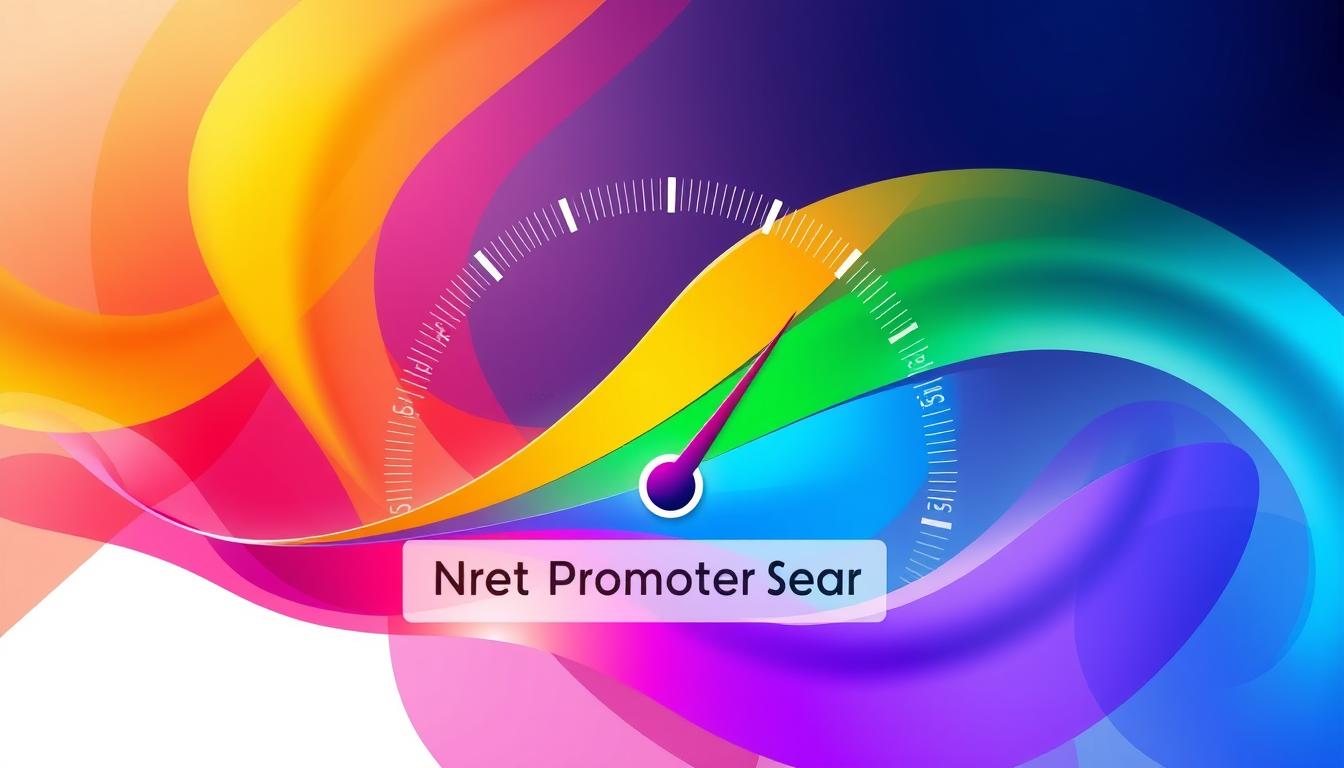In today’s competitive market, understanding customer insights through tools like the Net Promoter Score (NPS) has become essential. However, as we delve into NPS implementation, we must also prioritize NPS ethics and data privacy. Addressing bias and ethical dilemmas in NPS is not just a regulatory requirement; it is a commitment to integrity and trust with our customers. As we strive to gather valuable data through customer satisfaction surveys, we must balance effective data collection with the protection of individual privacy. This approach will not only enhance our customer insights but also foster a transparent relationship with our clientele, setting the groundwork for improved satisfaction and loyalty.
Key Takeaways
- Understanding NPS is critical in enhancing customer insights.
- Addressing biases can improve the accuracy of feedback.
- NPS ethics play a vital role in maintaining customer trust.
- Protecting data privacy is essential in NPS implementation.
- Ethical dilemmas must be navigated thoughtfully for effective results.
Understanding the Importance of NPS in Customer Insights
As we explore the importance of NPS, it becomes evident that this metric serves as a fundamental tool for understanding net promoter score among our customer base. This score not only reflects customer loyalty but also allows us to gauge overall satisfaction levels efficiently.
NPS is derived from a simple customer satisfaction survey, which asks customers how likely they are to recommend a product or service. This direct question provides profound insights into our performance and areas that require improvement. By capturing customer sentiment, we can identify strengths and weaknesses that inform our strategic decisions.
Utilizing NPS effectively helps us improve customer satisfaction across various touchpoints. Companies that engage in regular NPS assessments are often in a better position to enhance their customer experiences, leading to increased retention rates. Data gathered through this method allows us to track our progress and adapt our strategies in real-time.
A deeper understanding of the net promoter score aids enterprises in fostering stronger relationships with their clientele. As we strengthen our focus on NPS, we unlock valuable insights that can drive long-term loyalty and satisfaction.
| Aspect | Impact on Customer Satisfaction |
|---|---|
| Frequent Feedback Collection | Allows for timely adjustments in service delivery |
| Clear Metrics | Enables precise tracking of customer sentiment over time |
| Actionable Insights | Guides strategic business decisions |
| Customer Engagement | Fosters a sense of customer value and loyalty |
In summary, the importance of NPS cannot be overstated. Its role in understanding customer sentiments is essential for any organization aiming to thrive in today’s competitive landscape. As we harness the power of NPS, we can better align our offerings with customer expectations, ultimately leading to improved customer satisfaction.
Identifying Common Biases in NPS Surveys
In the realm of user satisfaction surveys like the Net Promoter Score (NPS), the identification of biases in NPS implementation plays a pivotal role in obtaining accurate customer insights. These biases can compromise the integrity of the data collected, leading to misguided decisions based on skewed perceptions of user satisfaction.
One prevalent issue is sampling bias, which occurs when the group surveyed does not represent the larger customer base. This discrepancy can lead to flawed conclusions about overall customer sentiment. When we focus on a limited demographic or condition our participation criteria too strictly, the findings may not reflect the true feelings of our entire audience.
Response bias is another challenge, often stemming from the phrasing of questions or the context in which they are presented. Customers may feel compelled to respond in a certain way, either by social desirability or due to the perceived expectations of the survey format. This response tendency can distort the actual representation of customer satisfaction, masking underlying issues that require attention.
Survey design significantly impacts the reliability of results. Poorly structured questions can confuse participants, leading to ambiguous responses that complicate data analysis. A comprehensive understanding of the ethical dilemmas in NPS surveys further emphasizes the necessity for clear, straightforward questioning that resonates with users and accurately captures their insights.
Below is a table outlining common biases encountered in NPS surveys:
| Type of Bias | Description | Impact on Results |
|---|---|---|
| Sampling Bias | Occurs when the survey sample is not representative of the entire customer base. | Leads to inaccurate conclusions about overall customer sentiment. |
| Response Bias | Influence of question phrasing that alters how customers respond. | Results in misleading data, affecting decision-making processes. |
| Survey Design Bias | Poorly structured questions that confuse respondents. | Complicates analysis and undermines the reliability of insights. |
Addressing these biases not only enhances the validity of our user satisfaction survey results but also fosters a more accurate depiction of customer insights. Balancing ethical considerations while implementing NPS is essential for driving genuine improvements in customer experience.
Net Promoter Score: A Tool for Ethical Decision Making
Utilizing the Net Promoter Score (NPS) as a decision-making tool allows organizations to navigate ethical dilemmas in NPS while enhancing their understanding of customer perceptions. NPS provides valuable customer insights that can inform various aspects of business operations, including marketing and brand management.
Through effective implementation of NPS, companies can gather feedback that reflects true customer sentiment. This feedback facilitates prioritization of service improvements and product adjustments based on authentic customer experiences. The ethical use of NPS data assists businesses in aligning their strategies with customer expectations, fostering stronger relationships and increasing trust.
Several case studies illustrate how organizations have embraced NPS data for ethical business decisions:
| Company | Industry | NPS Strategy | Impact |
|---|---|---|---|
| Amazon | E-commerce | Regularly gathers NPS feedback to enhance user experience | Improved customer satisfaction and loyalty |
| Apple | Technology | Utilizes NPS to gauge satisfaction with product releases | Increased brand loyalty and repeat purchases |
| Netflix | Entertainment | Analyzes NPS feedback to curate personalized content | Higher retention rates and user engagement |
Incorporating NPS as a crucial component in our decision-making process enables us to proactively address ethical dilemmas in NPS implementation. By leveraging customer insights AI, businesses can analyze feedback more effectively and make informed choices that support long-term success.
Best Practices for Ensuring Data Privacy
As organizations strive to gather insights through NPS, maintaining NPS data privacy becomes a vital task. Implementing robust data protection measures safeguards sensitive information while ensuring that we remain compliant with legal obligations. The importance of securing customer consent cannot be overstated, as it builds trust and enhances our relationship with our customer base.
Implementing Data Protection Measures
To protect customer data effectively, we must adopt a variety of strategies. Anonymizing data is an essential practice that minimizes the risk of identifying individuals while still enabling us to analyze trends. Secure data storage solutions are paramount, encompassing encrypted databases and access controls. Regular audits of data protection measures can help us identify vulnerabilities and ensure compliance with regional laws.
Securing Customer Consent
Securing informed consent from customers is critical in our NPS initiatives. Providing clear and concise information regarding how their data will be used supports ethical practices in customer insights. Mandatory opt-in options allow customers to make informed choices, and transparent communication fosters trust. When customers know their privacy is respected, they are more likely to engage with our surveys.
| Data Protection Measure | Purpose | Best Practice |
|---|---|---|
| Anonymizing Data | Protect individual identity | Ensure data cannot be traced back to individuals |
| Secure Storage Solutions | Prevent unauthorized access | Utilize encryption and access controls |
| User Transparency | Build trust and compliance | Clearly communicate data usage |
| Regular Audits | Identify vulnerabilities | Schedule audits to review data protection measures |
Leveraging AI for Customer Insights in NPS Implementation
Artificial intelligence brings transformative capabilities to the realm of customer insights, especially in Net Promoter Score (NPS) implementation. Using AI for customer insights enables organizations to analyze customer feedback swiftly and accurately. Such improvements lay a solid foundation to boost customer satisfaction (CSAT) levels significantly.
Benefits of AI in Analyzing Customer Feedback
Implementing AI offers numerous advantages in processing customer responses. Some of the key benefits include:
- Enhanced accuracy: AI can sift through extensive datasets, minimising human errors and biases that can skew results.
- Increased efficiency: Automation of data analysis expedites the feedback gathering process, allowing for real-time insights.
- Actionable insights: Leveraging AI’s predictive analytics capabilities helps organizations identify trends and areas for improvement, ultimately supporting efforts to improve CSAT.
Challenges and Ethical Considerations of AI
Despite the advantages, the integration of AI in NPS raises several challenges. As we advance, it’s paramount to understand the ethical considerations in AI application:
- Data biases: AI systems can inadvertently perpetuate existing biases present in the data, leading to skewed interpretations of customer sentiments.
- Privacy concerns: The consolidation of customer data can lead to breaches of privacy if not managed carefully, jeopardizing trust between brands and customers.
- Need for guidelines: Establishing clear ethical frameworks is essential to navigating the risks associated with AI. This involves setting standards for data usage and ensuring compliance with regulations.
| Aspect | Benefits | Challenges |
|---|---|---|
| Accuracy | Minimises human error | Potential data biases |
| Efficiency | Real-time analysis | Integration complexity |
| Insights | Data-driven decisions | Ethical dilemmas |
Importance of Ethics in NPS Data Collection
In the realm of customer experience, the importance of ethics in NPS cannot be overstated. Engaging in ethical data collection practices not only safeguards customer privacy but also enhances trust between the organization and its clientele. A transparent approach to a customer satisfaction survey fosters an environment where customers feel valued and understood.
Unethical practices can lead to dire repercussions, such as data breaches that compromise sensitive information. Such incidents can severely damage an organization’s reputation, resulting in a loss of customer loyalty and alienation. By embedding ethical practices in NPS, we promote a culture of accountability, ensuring the longevity of our business relationships.
Transparency in how we communicate our data collection practices encourages customer participation, creating more meaningful interactions. We must ensure that ethical practices in NPS are not merely an afterthought but integrated into the core of our operational strategies. By prioritizing these values, we can cultivate a culture of ethical mindfulness that ultimately enhances our organization’s reputation while ensuring customer trust remains intact.
How to Address Ethical Dilemmas in NPS Implementation
Organizations face various ethical dilemmas when implementing Net Promoter Score (NPS) systems. Addressing these dilemmas becomes essential for maintaining integrity and trust with customers. We can take practical steps to ensure that our NPS initiatives align with strong ethical standards. Establishing clear ethical guidelines serves as a foundation for our processes while training staff on these guidelines fosters a culture of ethical practices throughout our organization.
Establishing Clear Ethical Guidelines
Defining ethical guidelines in NPS is crucial for addressing ethical dilemmas in NPS implementation. These guidelines should cover:
- Data collection methods
- Data analysis and interpretation
- Transparency with respondents
- Protection of customer privacy
By outlining these standards, we create a framework that encourages ethical behavior across all levels. This clarity helps team members understand their responsibilities regarding ethical practices in gathering and handling customer feedback.
Training Staff on Ethical Practices
Staff training on ethics plays a pivotal role in reinforcing our ethical guidelines in NPS. We must ensure that every team member comprehensively understands these guidelines and knows how to apply them in their daily tasks. Our training program could include:
- Workshops on ethical decision-making
- Case studies highlighting ethical dilemmas
- Role-playing scenarios to practice ethical responses
Through effective staff training on ethics, we equip our team to make informed decisions, ultimately enhancing the integrity of our NPS implementation.
Improving Customer Satisfaction Through Ethical NPS Practices
In today’s competitive landscape, we understand the critical need to improve CSAT through NPS. Implementing ethical NPS practices fosters trust between businesses and their customers. Transparency and accountability serve as foundational pillars that customers value immensely. When they perceive that their feedback is treated with integrity, it enhances overall customer satisfaction.
Guest satisfaction surveys play a vital role in this equation. Our experiences show that when customers feel their opinions genuinely matter, they are more inclined to engage positively with our brand. Ethical NPS practices not only encourage honest feedback but also establish a rapport that encourages ongoing dialogue and improves customer loyalty.
Case studies reveal significant benefits from organizations adopting ethical methodologies. Companies that prioritize transparency often achieve notable gains in customer satisfaction rates. For instance, a retail brand that implemented strict ethical guidelines in their customer feedback process saw a marked increase in NPS scores, leading to heightened levels of customer retention and advocacy.
To illustrate, we’ve compiled a table below that outlines key aspects and outcomes of ethical NPS practices across various industries:
| Industry | Ethical Practice Implemented | Increase in Customer Satisfaction (%) | NPS Pre-Implementation | NPS Post-Implementation |
|---|---|---|---|---|
| Retail | Transparency in feedback usage | 15 | 30 | 45 |
| Hospitality | Anonymous guest satisfaction surveys | 20 | 35 | 55 |
| Healthcare | Patient feedback integration | 10 | 40 | 50 |

By committing to ethical NPS practices, we can meaningfully increase customer satisfaction while building a loyal customer base that thrives on genuine interactions. This commitment is not merely a business strategy but a pathway to long-term success in fostering lasting relationships with our customers.
Conclusion
In this exploration of NPS implementation, we have underscored the NPS importance of addressing bias and ethical dilemmas in NPS practices. Ethical considerations are crucial not just for safeguarding customer data but also for enhancing our understanding of consumer needs and preferences. By navigating these ethical dilemmas in NPS, we position ourselves to gather more reliable insights from our customer satisfaction surveys.
Furthermore, prioritizing data privacy in NPS helps build trust with our customers, fostering loyalty and engagement. When organizations commit to ethical practices, they not only comply with regulations but also create a positive feedback loop that promotes sustainable growth. This attention to ethics is a vital cornerstone in our efforts to elevate the overall customer experience.
Ultimately, as businesses, we must integrate ethics into our NPS initiatives. By doing so, we can maximize the effectiveness of our customer satisfaction surveys while ensuring that our customers’ rights are respected. This dual focus on NPS importance and ethical integrity enables us to drive success and nurture long-lasting relationships with our clients.
FAQ
What is the Net Promoter Score (NPS) and why is it important?
The Net Promoter Score (NPS) is a customer satisfaction metric that measures how likely customers are to recommend a company’s products or services. It is important because it provides quantifiable insights into customer loyalty and satisfaction, helping organizations understand their strengths and areas for improvement.
How do we calculate the NPS score?
To calculate the NPS score, we follow these steps: Survey customers with a single question asking how likely they are to recommend us on a scale of 0 to 10. We then categorize respondents into three groups: Promoters (9-10), Passives (7-8), and Detractors (0-6). The NPS is calculated by subtracting the percentage of Detractors from the percentage of Promoters.
What are some common biases to look out for in NPS surveys?
Common biases in NPS surveys include sampling bias, where the survey may not represent the entire customer base, and response bias, where the wording of questions may influence how customers answer. Addressing these biases is essential for accurate customer insights and effective decision-making.
How can we use NPS to improve customer satisfaction?
By analyzing the feedback from NPS surveys, we can identify specific areas that need improvement. Addressing the concerns of Detractors and enhancing the experience of Promoters can lead us to make strategic changes that ultimately improve overall customer satisfaction.
What ethical considerations should we keep in mind with NPS implementation?
Ethical considerations in NPS implementation include ensuring data privacy, securing customer consent, and being transparent about how the data will be used. We must prioritize ethical practices to build trust with our customers and protect their sensitive information.
How can artificial intelligence enhance our NPS efforts?
AI can enhance our NPS efforts by analyzing large volumes of customer feedback to extract meaningful patterns and trends. This helps us achieve improved accuracy in understanding customer sentiments, while also allowing faster data processing that leads to timely strategic actions.
What best practices should we follow to ensure data privacy in NPS surveys?
To ensure data privacy, we should implement data protection measures like anonymizing the collected data, using secure storage solutions, and regularly updating customers on how their information will be used. It’s crucial to comply with legal regulations regarding data protection.
How can we train our staff on ethical practices related to NPS?
We can train our staff by establishing clear ethical guidelines concerning customer data collection and analysis. Conducting regular training sessions will help instill a culture of ethical mindfulness, ensuring that everyone understands the importance of ethics in our NPS implementation.






